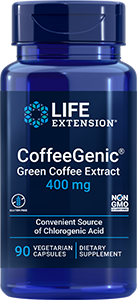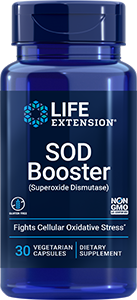- Science & Research
- Science News
- Newsletter
- 2012
- August 17

Newsletter
Newsletter
Supplement Combo Improves Cognitive Function In Older Individuals
Supplement combo improves cognitive function in older individuals
Friday, August 17, 2012. The Journal of Alzheimer's Disease published an article online on August 9, 2012 which describes the finding of a three year study that evaluated the effects of a nutritional supplement on cognitive function in older men and women. Forty-one participants aged 65 and older in Japan's "Tone Project" were assigned capsules providing 1,182 milligrams purified fish oils containing 290 milligrams eicosapentaenoic acid (EPA) and 203 milligrams docosahexaenoic acid (DHA); 84 milligrams lycopene from tomato and 240 milligrams Ginkgo biloba extract daily for three years. The control group consisted of 622 participants with no supplement intake or serious diseases. Tests of cognitive function, including attention, memory, language and reasoning skills, were administered at the beginning and end of the study. Blood samples collected at the initial examination were analyzed for apolipoprotein E (APOE) genotype and other factors. According to the authors, "An increasing number of studies in cell lines, targeted replacement rodents, and human volunteers indicate higher oxidative stress and a more pro-inflammatory state associated with the apolipoprotein E4 allele (APOE4)." Although memory scores improved in both groups, the increase was larger in those who received the supplements compared to the controls. Language ability and attention declined in those who did not receive the supplements, while remaining stable in supplemented participants. When test scores were evaluated as a whole, a significant improvement occurred only in supplemented subjects. Improvement was noted in both supplemented APOE4 carriers and noncarriers; however, the benefit was greater in those positive for APOE4. Mechanisms for EPA and DHA in maintaining cognitive function are well known, and include the fatty acids' anti-inflammatory and antioxidant properties. However, although omega-3 fatty acids have an antioxidant effect, they are also subject to lipid peroxidation, therefore, combining them with compounds that have antioxidant properties such as lycopene could improve their benefits. "When just one of these agents or nutrients is used by an elderly person, its effect on cognitive function is not enough to prevent aging decline, at least not with the usual dosage in human trial studies," the authors remark. "When these agents or nutrients are used in combination, they may cover the vulnerability of other agents and synergistically potentiate their respective antioxidant properties, which might then be effective for the improvement of cognitive function. Additionally, this may decrease the oxidative stress associated with the E4 allele and improve cognitive function among APOE4 carriers." | ||||||||||||||||||||||||||||||||||||||||
 | ||||||||||||||||||||||||||||||||||||||||
| ||||||||||||||||||||||||||||||||||||||||
 | ||||||||||||||||||||||||||||||||||||||||
| ||||||||||||||||||||||||||||||||||||||||
LuraLean® is a registered trademark of AHD International LLC. AprèsFlex™ is a trademark of Laila Nutraceuticals exclusively licensed to PLThomas – Laila Nutra LLC. International patents pending. Natural Relief 1222™ and Natural Relief 1222™ logo are trademarks of NR1222 LLC. All rights reserved. Isocell SA, France is the owner of US Patents Nos. 6,045,809 and 6,426,068B1 and trademark of GliSODin®. | ||||||||||||||||||||||||||||||||||||||||
The latest news on aging, nutrition, and vitamins
Lab
Testing
How Life Extension lab testing works










